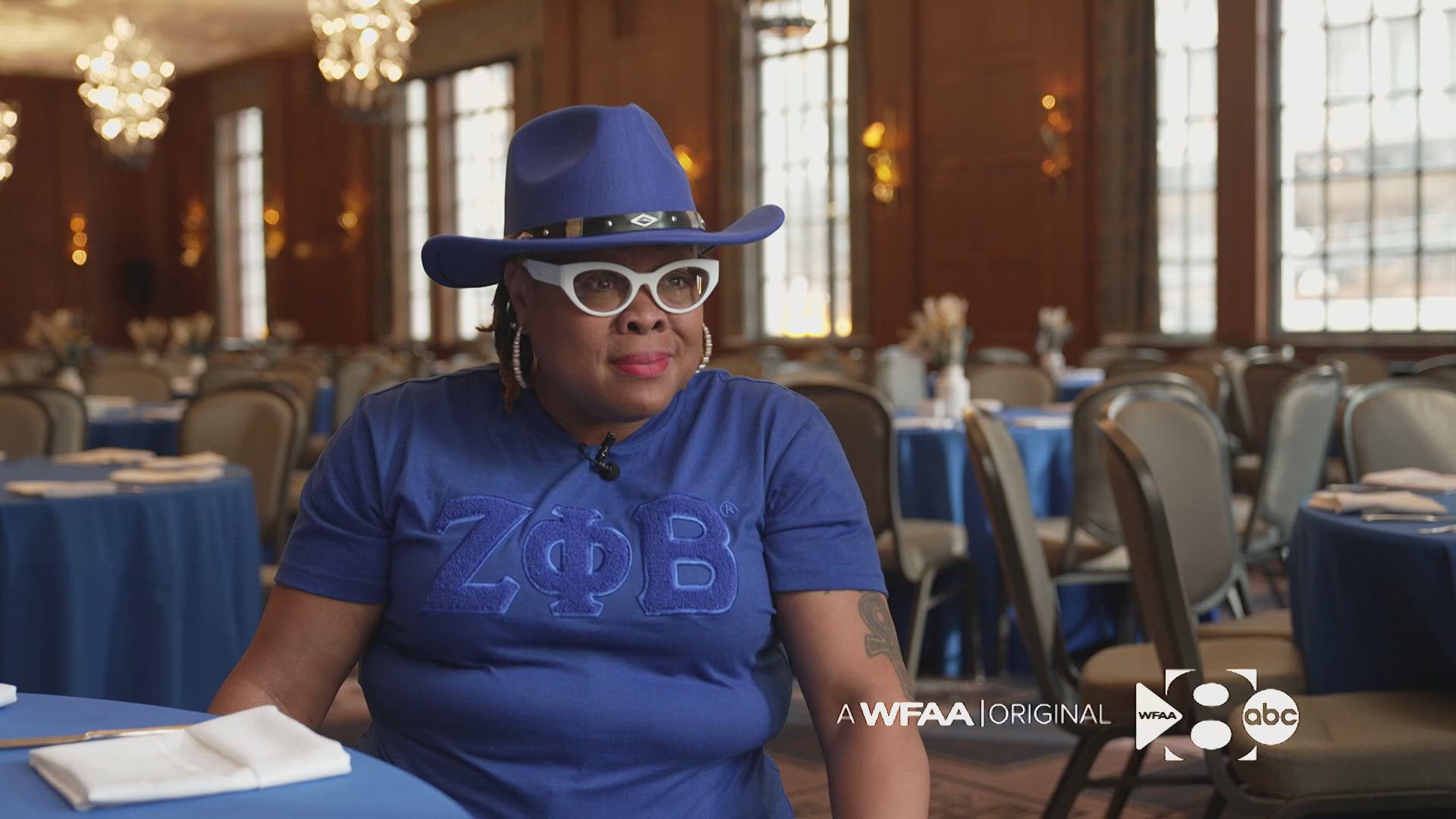DALLAS — For years, Dr. Pamela Grayson has waited for the moment to represent her party. She runs Collective Activism, a social justice organization.
This election cycle, she was a first-time delegate at the Democratic National Convention in Chicago. “Two-hundred-sixty-three votes of freedom. One of those is mine, baby,” said Dr. Grayson as she sat at the convention ready to back a Presidential nominee.
Being a delegate is a role Dr. Grayson does not take lightly. “Just 60 short years ago, Fannie Lou Hamer was fighting with Congress because the Democrats would not see the Black Democrats. And today I'm here as a Black Democrat,” said Dr. Grayson.
No matter the party lines, Dr. Grayson’s focus is civic engagement. “Right now, the number one, number one effort is voter registration and voting,” said Dr. Grayson.
WFAA spoke with other DFW residents who are also civically engaged and who work to get others involved as well. We asked them to define what civic engagement means.
“Civic engagement is whatever you are able to do wherever you are,” said Erika Barrera, a fundraising consultant and donor advisor.
“Having an awareness of the history,” said Michael Sorrell, Paul Quinn College President.
“Understanding your responsibility and being accountable,” said John Wiley Price, Dallas County Commissioner.
“Being involved enough to ask the right questions to the right people,” said Dorothy Burton, author, teacher and former politician.
Burton is a former Republican of over 40 years. “I became involved in politics when I was 13 years old,” said Burton.
She understood early on what it meant to be civically engaged. “The most precious thing that we have is our vote,” said Burton.
She was Duncanville’s first Black City Council member who was elected after a movement to create an at-large seat on the council. An at-large seat erases district lines allowing the entire city to vote instead of only people in a particular district. Ultimately, it strengthened the voting power of minorities spread across Duncanville.
“It didn't matter that I was Republican. It didn't matter. What mattered was I was Black, and Duncanville was white,” said Burton. “That's when it became possible for African Americans and Hispanics to be involved here. So, I was the first one. I didn't do it for me at all, but it was, it was the right thing to do.”
It is a call that drives her to get other Black voters engaged. “Texas is an apartheid state, meaning that Texas is a majority-minority state, but we are led by, governed by whites,” said Burton.
U.S. Census data shows that in July 2023, whites made up 39.6% of Texas’ population. Hispanics or Latinos made up 39.8% outnumber the number of whites. Blacks were 13.6%. Asians were 6%. That leads many to wonder if the Black vote is still relevant at all.
“If we would just speak to the issues that our community has, no one would ever be able to ask that question,” said Sorrell.
He is not only Paul Quinn College’s President, he also teaches there. “We are very clear. We want to speak to the issues of Black and brown poverty. If we speak to those issues, then yes, we become more relevant and more impactful,” said Sorrell.
Pew Research Center predicts by November, Black voters will account for 14% of eligible voters in the U.S. That is 34.4 million voters. “That 14%..shoot, 5% of that 14% can sway that,” said Burton.
Research also showed that while the Hispanic and Asian populations are growing faster in the U.S., the number of Black voters is still higher and climbing. “What's working in our favor is tradition. The other groups don't have that yet. But we still have the tradition coming from the civil rights movement. We still have the tradition coming from the Black Church,” said Burton.
“Let us be very, very clear, people still need us,” said Sorrell.
That is a message Dallas County Commissioner, John Wiley Price, shares. He has been in politics for more than 40 years. “What we call that voting age population African Americans, while we're only 22% of the 2.7 million people in the county, we represent a considerable block voting force,” said Price.
He said what has changed is how we engage Black voters. That is why he has been teaching seniors how to use electronic ballots this election season. “We’ve got to show them that we’re accessible because the young generation needs to understand this is about sacrifice,” said Price.
“As Black parents, we don’t get our children actively involved in the political process early,” said Burton. “But then at 18 years old, we tell them you’ve got to go vote. What am I going to vote for? I don’t know.”
“The power is in your hands. All you have to do is use it,” said Price.
Not only has Dr. Grayson been using her power. She’s teaching her son about his, too. She brought her son to the DNC with her. “He had football practice. I had another meeting to go to. It all got shifted because if I need to go to this event and get people registered to vote. That's where we go,” said Dr. Grayson.
She is putting her civic duties first. “Those that came before me, they walked so I could run,” said Dr. Grayson. “They’ve sustained their own battles, but they still have a heart for those of us that come behind them. Yeah, that’s meaningful.”

